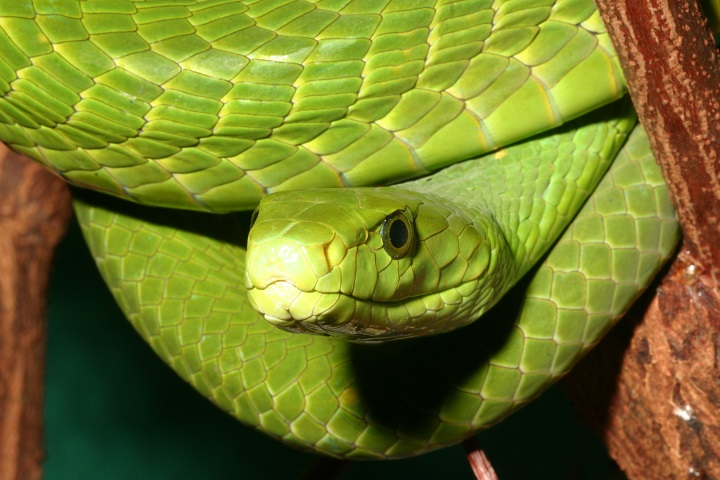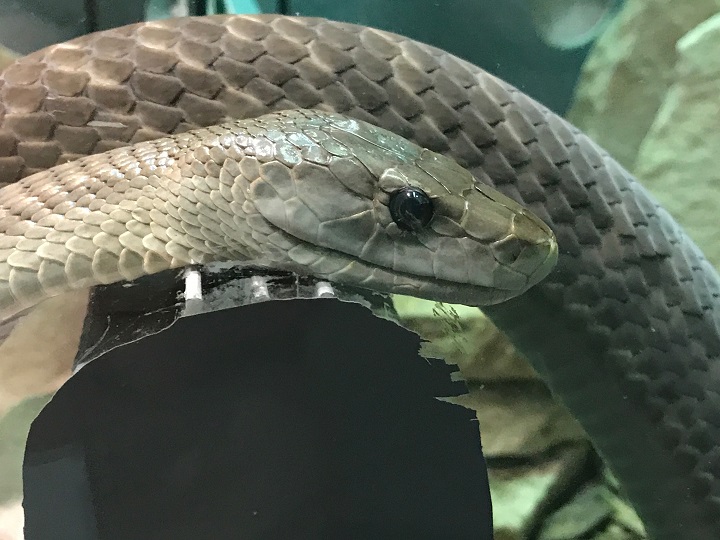At least five million people are bitten by venomous snakes every year around the world. 100,000 people die from such bites, while another 500,000 are left with chronic disabilities, according to the World Health Organization.

With most victims living in areas where access to adequate healthcare is limited, experts believe the statistics are severely underestimated.
“That is probably the visible tip of the iceberg,” Dr. Dirk Engels, director for the department of control of neglected tropical disease at the WHO, told Global News.
Now the WHO has named snakebite envenoming a top priority among neglected tropical diseases — a move many advocates are applauding.
“As far as neglected diseases go, [snakebite] is one of the most neglected, despite the large disease burden,” Tim Reed, Health Action International’s executive director, told Global News.
Health Action International, a non-governmental organization, is one of many groups that have been lobbying the WHO over the issue for years.
Now, as of June 9, snakebite envenoming is one of the top 20 priority neglected tropical diseases considered a threat to more than one billion people around the world.
Under-reported incidents
The populations most at risk are those living in tropic and subtropic areas of Africa, South Asia, Central America and South America.
Reed said the risk posed by snakebites has gone unrecognized for years because the victims come from low-income countries.
“It’s farmers. It’s the marginalized. It’s those in poverty who rely on the land,” Reed said.
Dr. Engels spent 15 years providing medical care in parts of Africa, where snakebites are not uncommon.

Get weekly health news
Where access to proper medical treatment is scarce, venomous snakes often cause permanent injuries and even death.
“These wounds are fairly nasty wounds … and sometimes you have to do an amputation of a leg or an arm,” Dr. Engels explained.
Venomous snakes in Canada
While Canada is the home to three species of venomous snakes, it’s not uncommon to find non-native venomous species kept in private collections or as pets — mambas, vipers, rattlesnakes and cobras, to name a few.
Regulations surrounding exotic animals differs from province to province across Canada. In Ontario, the responsibility to regulate ownership falls to municipalities.
READ MORE: More Canadians keeping exotic pets, experts worried
The result is what snake expert Kyle O’Grady calls a “patchwork,” with some cities permitting venomous snakes while others prohibit them outright.
“At the end of the day, it’s only a bylaw that’s being enforced — which is only enforced upon complaint, so nobody goes around, knocks on your door, and asks if you have a black mamba in your basement,” O’Grady said.
As curator at the Indian River Reptile Zoo just east of Peterborough, Ont., O’Grady cares for more than 200 venomous snakes. The vast majority of the non-profit zoological facility and sanctuary’s reptiles and exotic animals are either rescued or surrendered from private collections.
Ontario Antivenin Bank
What’s worrying for snake experts is that very few people who own these dangerous non-native snakes will ensure they have the proper antivenom on hand.
“There are even public exhibits, and they don’t have the proper antivenom, so it can be quite dangerous,” said Bry Loyst, director of the Indian River Reptile Zoo.
In addition to its animals, the Indian River Reptile Zoo also houses the Ontario Antivenin Bank. It’s just one of two antivenin banks for non-native venomous snakes in North America, and the only one in Canada. Loyst founded the bank as a charitable venture in 1999.
READ MORE: Venomous snakes stolen from Niagara-area home
Since then, the Ontario Antivenin Bank has been stocking potentially life-saving serums for non-native venomous snakebites.
The bank not only offers a safety net for staff working at the zoo, but has also provided Canadian hospitals with antivenins on several occasions as well.
“Antivenom isn’t the easiest thing to get, but it’s a necessity to be properly prepared when you’re keeping venomous reptiles,” O’Grady noted.
Improving antivenom access
Adding snakebite envenoming to a list of top health priorities is just the beginning. Now, the WHO is expected to create a plan that includes medical intervention in countries that need it most.
“This is primarily about access to antivenom products … if there’s no antivenom at the hospital, what are you supposed to do?” Reed said.
Alongside groups such as Health Action International, the WHO is aiming to improve access to antivenins in local hospitals. Healthcare workers and the public will also receive education to help prevent snakebites but also to ensure proper treatment when someone is bitten.
READ MORE: Snakebite anti-venom to soon run out, leaving thousands at risk
All of this will require funding, and the WHO is now looking for donors.
“If the international community doesn’t step up with additional resources, then we can have all the good we want, but we can’t go any further,” Dr. Engels said.
- ‘Deeply ashamed’: Canadian Medical Association apologizes for harms to Indigenous peoples
- Kate Middleton marks quiet return to work following cancer treatment
- Health Canada gives 1 year to remove BVO from drinks. What are the risks?
- Never heard of eastern equine encephalitis? Cases are ‘likely underreported’












Comments